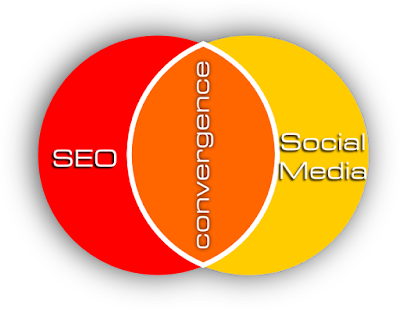Social Media is a term you cannot fail to mention when talking about search engine optimization.
There are many ways that social media influences SEO efforts. SEO has changed tremendously over the years, and Google, Bing and Yahoo have improved their search algorithms to make searching easier and more efficient.
This is great for consumers who are searching for content, but for brand managers it can be a problem.
PR and marketing pros must stay current with search engines’ changes. For example, though content quality was once irrelevant, you no longer can succeed with substandard copy.
Social media is an important factor in SEO efforts, and online platforms are considered valuable sources of information for an organization’s website. With good social media links, you can improve your site’s SEO efficiently.

Here are several truths about how Social Media and SEO intersect:
1. Social media links might not boost search rank.
Many marketers believe that links shared on social platforms have a major affect on ranking.
They think that Google might take links that published on social media profiles into consideration as credible backlinks—or if you share a blog post on Twitter and it goes viral, the resulting new links might positively affect on the post’s search ranking.
An interview with Google and Bing revealed that though data from online profile considered, it’s not important to ranking.
However, the authority of your organization on social media is. This is different from the number of times a certain page has been linked to social media shares.
2. Profiles rank in search engines, too.
Social media shares might not help in to increase your website’s visibility, but your online profile’s rank can.
It’s common to find a company’s Instagram, Facebook and other social media profiles on the first page of Google.
To some, social media presences feel more personal than the web pages. They are great way to learn the personality of a company easily. If a social account shows up in search results, it’s also likely to be clicked on.
3. Social media channels are search engines.
There are things that you cannot—or don’t want to—search for on Google.
This might be because it’s easier to find on Facebook, or if you’re active on Twitter, consumers can directly access new content that you share. Hashtags can provide brand managers with the opportunity to share beautiful visual content.
Consumers are also most likely to use social media platforms to learn more about your organization.
4. Social media is not just Facebook.
Though Facebook and Twitter are among the most popular social media platforms—and the most beneficial sites for business purposes—don’t forget about other platforms .
Instagram isn’t just selfies and memes. You can promote your business on Instagram and give it a strong online presence. On LinkedIn, professionals meet professionals. The platform creates a fantastic aura for professional practice. If you’re running a consultancy firm, use LinkedIn to market your skills.
5. Bing is big for social media.
Though Google is the biggest—and most used—search engine, it’s wise to include Bing in your SEO efforts. Not only is this search engine the second most popular, it has been clear about how social media links fit into its algorithm.
Don’t focus so much on Google that you forget about Bing.